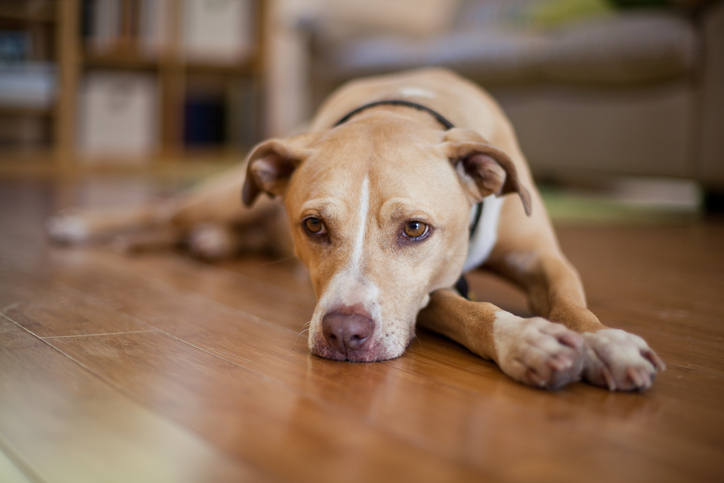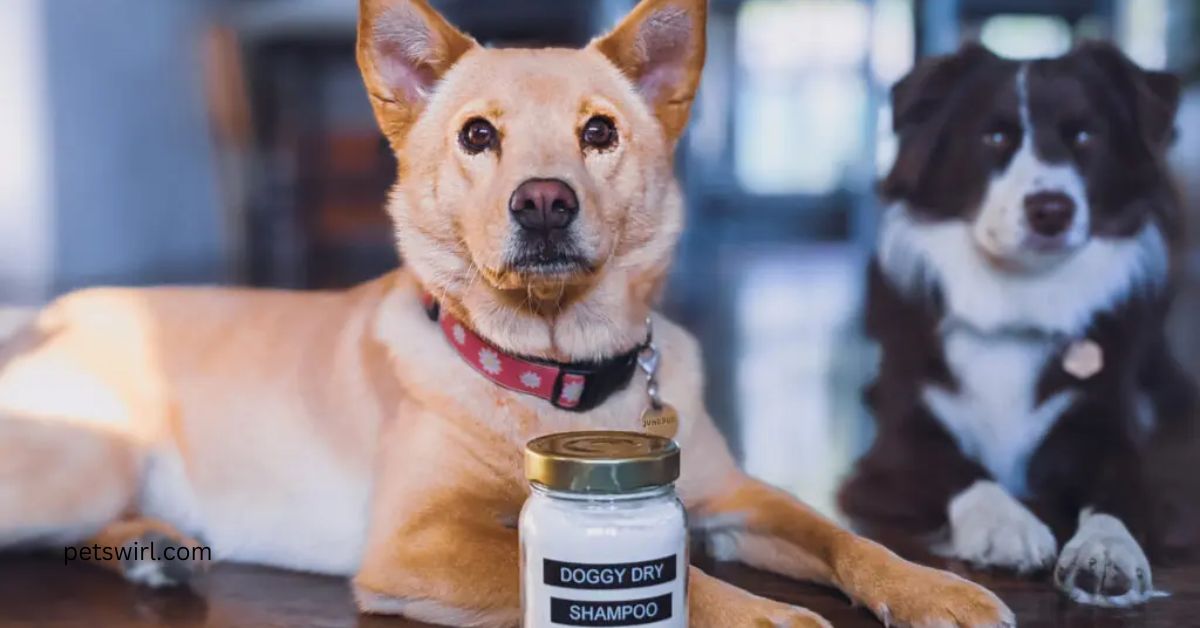Dealing with dog diarrhea can be a stressful experience for any pet owner. Diarrhea is a common issue in dogs, ranging from mild to severe, and can be caused by various factors such as diet changes, infections, or underlying health conditions. While occasional diarrhea may not be a cause for alarm, persistent or severe cases require immediate attention. In this comprehensive guide, we’ll explore the causes of dog diarrhea, how to treat it, and preventative measures you can take to ensure your dog stays healthy.
Table of Contents
Understanding Dog Diarrhea: What Is It?
Dog diarrhea is characterized by loose, watery stools that can occur suddenly and last for a short or extended period. It’s essential to understand that diarrhea is not a disease but a symptom indicating that something is wrong with your dog’s digestive system. The causes can range from simple dietary indiscretions to more serious health issues. Knowing the underlying cause of your dog’s diarrhea is crucial for effective treatment.

Common Causes
To effectively address dog diarrhea, you need to understand the potential triggers. Here are some common causes:
- Dietary Indiscretion: One of the leading causes is dietary indiscretion, which occurs when your dog eats something they shouldn’t. This could include table scraps, garbage, or food that is spoiled or toxic.
- Sudden Diet Changes: Introducing new foods too quickly can upset your dog’s digestive system, leading to diarrhea. Gradual changes in diet are essential to avoid gastrointestinal disturbances.
- Food Allergies or Intolerances: Just like humans, dogs can have food allergies or intolerances that can cause dog diarrhea. Common culprits include grains, dairy, and certain proteins.
- Infections and Parasites: Bacterial, viral, and parasitic infections can lead to this. Common infections include Salmonella, Parvovirus, and Giardia. If your dog has diarrhea accompanied by other symptoms like vomiting, lethargy, or fever, it’s crucial to consult a vet immediately.
- Stress or Anxiety: Stress can significantly impact a dog’s digestive system. Changes in the environment, new routines, or separation anxiety can trigger episodes of dog diarrhea.
- Medications: Some medications, particularly antibiotics, can disrupt the natural balance of gut bacteria, resulting in diarrhea. Always consult your veterinarian about possible side effects of medications your dog is taking.
- Toxins or Poisonous Substances: Ingesting toxic substances like chemicals, plants, or certain foods can cause severe dog diarrhea and require emergency veterinary care.
- Underlying Health Conditions: Chronic conditions such as inflammatory bowel disease (IBD), pancreatitis, or liver disease can lead to persistent dog diarrhea. In these cases, a vet will need to diagnose and treat the underlying condition.
Symptoms
Dog diarrhea can be accompanied by various symptoms, which can help indicate the severity and underlying cause. Some common symptoms include:
- Vomiting: Diarrhea coupled with vomiting can signal a more severe digestive issue.
- Dehydration: Watery diarrhea can lead to dehydration, a potentially dangerous condition for dogs.
- Loss of Appetite: If your dog refuses to eat, it’s essential to monitor their condition closely.
- Lethargy: A lack of energy and enthusiasm may suggest a more serious problem.
- Abdominal Pain or Bloating: If your dog shows signs of discomfort when their belly is touched, it could indicate an issue needing medical attention.

How to Treat Dog Diarrhea at Home
When dealing with this, the initial step is to assess the severity and duration of the symptoms. Mild cases can often be managed at home with simple treatments, while severe cases require veterinary intervention.
- Fasting: For mild dog diarrhea, you can withhold food for 12-24 hours to allow your dog’s digestive system to reset. Ensure they have access to fresh water to prevent dehydration.
- Bland Diet: After fasting, reintroduce food gradually with a bland diet consisting of boiled chicken and rice or plain pumpkin puree. These foods are gentle on the stomach and help firm up stools.
- Probiotics: Probiotics can restore the balance of good bacteria in your dog’s gut, aiding digestion and reducing diarrhea. Consult your vet for the best probiotic options.
- Hydration: Keeping your dog hydrated is crucial when managing dog diarrhea. Offer small amounts of water frequently or consider electrolyte solutions designed for pets.
- Monitor for Changes: Keep a close eye on your dog’s stool consistency, frequency, and any additional symptoms. If diarrhea persists beyond 48 hours or worsens, contact your vet.
When to See a Vet?
While mild cases can often be treated at home, certain situations necessitate professional veterinary care. Seek immediate medical attention if:
- Diarrhea is accompanied by blood or mucus.
- Your dog has severe or persistent diarrhea lasting more than 48 hours.
- There are additional symptoms such as vomiting, fever, or significant lethargy.
- Your dog shows signs of pain, such as whining or reluctance to move.
- Your dog is very young, old, or has a pre-existing health condition.
Prompt veterinary care can help identify the underlying cause of your dog’s diarrhea and ensure appropriate treatment is administered.
Preventing Dog Diarrhea
Preventing dog diarrhea involves several proactive steps to ensure your pet’s digestive health remains in top shape. Here are some tips to help prevent future episodes:
- Maintain a Consistent Diet: Avoid sudden changes in your dog’s diet. Gradually introduce new foods over a week to prevent digestive upset.
- Avoid Table Scraps and Garbage: Keep your dog away from trash, spoiled food, and table scraps, as these are common triggers for this issue.
- Regular Deworming and Vaccinations: Keeping your dog’s vaccinations and deworming schedule up-to-date can prevent infections that lead to diarrhea.
- Proper Hydration: Ensure your dog always has access to clean, fresh water to help maintain digestive health.
- Monitor Stress Levels: Minimize changes in your dog’s environment that could cause anxiety. Stress reduction can prevent episodes of dog diarrhea linked to anxiety.
- Routine Vet Checkups: Regular vet checkups can help detect any underlying health conditions early, preventing chronic dog diarrhea.
Diet Tips for Dogs Prone to Diarrhea
For dogs prone to diarrhea, maintaining a suitable diet is essential. Here are some dietary tips to help manage and prevent future episodes of dog diarrhea:
- High-Quality Dog Food: Opt for high-quality, easily digestible dog food that’s free from artificial additives and fillers.
- Limited Ingredient Diets: If your dog has food sensitivities, consider a limited-ingredient diet to identify and eliminate triggers.
- Incorporate Fiber: Adding fiber, such as plain pumpkin puree, to your dog’s diet can help regulate bowel movements and firm up stools.
- Avoid Human Foods: Many human foods are unsuitable for dogs and can lead to digestive issues. Always consult your vet before introducing new foods.
Can Dog Diarrhea Be Life-Threatening?
While most cases of dog diarrhea are not life-threatening, severe or chronic episodes can lead to dehydration, nutritional deficiencies, and weight loss, which can pose significant health risks. Prolonged diarrhea can also be a sign of a more severe underlying condition that needs prompt medical attention.
Knowing when to seek veterinary care and understanding the potential causes of dog diarrhea can make a significant difference in managing your dog’s health.
Conclusion
It is a common but manageable issue for pet owners. By understanding the causes, recognizing the symptoms, and knowing how to treat and prevent it, you can keep your furry friend healthy and comfortable. Always monitor your dog’s condition closely and consult your vet if you’re ever in doubt.
Whether it’s caused by dietary indiscretion, stress, or a more serious health issue, dog diarrhea doesn’t have to be a daunting problem. With the right approach, you can effectively manage this condition and ensure your dog’s digestive health remains in peak condition.
Also read: Small Dog Breeds





